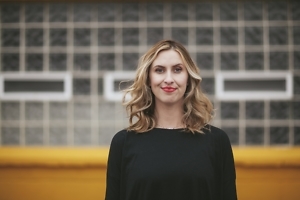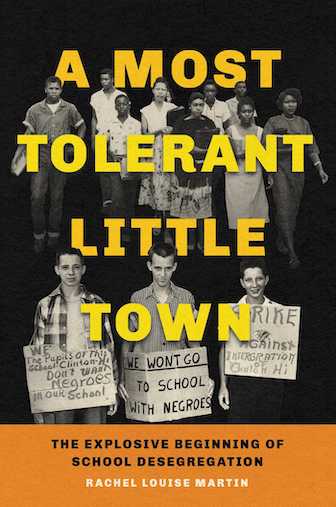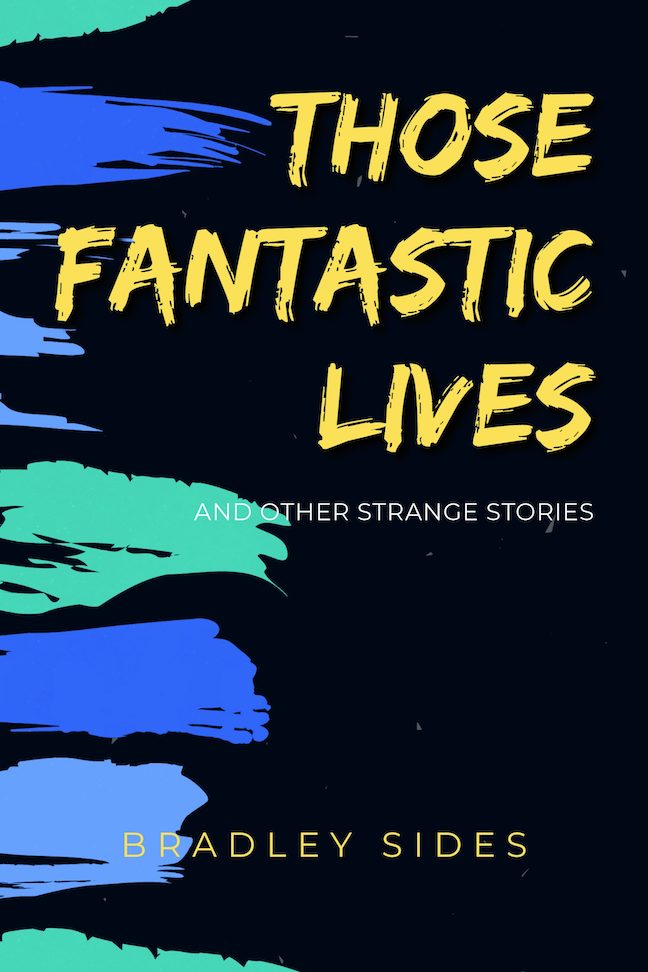Life After Life After Life
Nora McInerny rebuilds her life after deep loss in No Happy Endings
“I’m basically a polygamist,” Nora McInerny writes in her new memoir, No Happy Endings, “but nobody can put me in jail for it because one of them is dead.” Now married, with a new baby and two stepchildren in addition to her first child, McInerny’s current life bears the enduring mark of a brutal constellation of losses she endured in 2014 at age thirty-one—her father’s death, a miscarriage, and the death of her first husband—all in six weeks.

McInerny has found unique ways to embrace what might seem like a miserable bailiwick. After writing about these losses in her first book, It’s Okay to Laugh (Crying is Cool Too), McInerny turned her perspective outward, launching the podcast Terrible, Thanks for Asking, which focuses on the difficult, vulnerable conversations that arise from intense experiences. Recent episodes include the aftermath of the mass shooting at the Tree of Life synagogue in Pittsburgh and the painful uncertainties of two foster parents hoping to adopt. In these interviews, McInerny holds space for her subjects’ complex experiences.
Becoming a young widow prepared McInerny for the toughest conversations life could offer. After seeing her first husband, Aaron, through aggressive brain cancer, she spent her first widowed year shell-shocked, struggling to picture a future for herself and her toddler son. One possibility she did not anticipate: that just a year later she would find new, strengthening love (a man with two children of his own) and become pregnant again.
Amid the upheaval of joy and grief, McInerny couldn’t help but feel that maybe “my new happiness was ill-gotten, a well-made fake.” Establishing her new relationship and blended family sent rolling waves of change through her sense of identity, challenging her at every turn, just as the hardest times had done: “Unexpected goodness is as large and overwhelming as unexpected tragedy,” she writes. “It feels as if all unexpected life events blow in all at once, like a summer storm that drops rocks of ice on your lawn on an eighty-degree day.” The bittersweet gains shined a new light on the losses, and vice versa.
 Navigating such huge changes became even tougher when the time came to announce them publicly: “I couldn’t talk about my happiness without touching the uncomfortable truth that everything I have now is built on everything I lost.” This awareness heightened the social awkwardness she already felt. During her first husband’s illness and death, people had changed their behavior toward her. “My discomfort made them uncomfortable,” she writes. “I was a living, breathing, publicly crying reminder that their own lives could go off the rails at any time.” Even though most people were now rooting for her happiness, questions about her new life—including the pregnant belly she took pains not to mention—left her overexposed and guilt-ridden.
Navigating such huge changes became even tougher when the time came to announce them publicly: “I couldn’t talk about my happiness without touching the uncomfortable truth that everything I have now is built on everything I lost.” This awareness heightened the social awkwardness she already felt. During her first husband’s illness and death, people had changed their behavior toward her. “My discomfort made them uncomfortable,” she writes. “I was a living, breathing, publicly crying reminder that their own lives could go off the rails at any time.” Even though most people were now rooting for her happiness, questions about her new life—including the pregnant belly she took pains not to mention—left her overexposed and guilt-ridden.
One recurrent subject in No Happy Endings is the futility of dwelling on the “bad timing” of major life events, good or bad. McInerny’s past few years stand as a powerful argument for accepting that our most significant changes occur on their own schedules, often overlapping. People have asked McInerny how her new husband, Matthew, responds to the ever-present legacy of a husband who has died. “We’re used to people having loved before, we aren’t used to the idea that those loves could coexist.” But McInerny and her family know they can never disentangle their loves from their losses. When the feelings come, “they are all strands in a thread, all tangled up with one another.”
As the book’s title suggests, McInerny rejects the cliché of a “Hollywood happy ending”: “This is life after life after life, in all of the chaos and contradiction of feelings and doings and beings involved,” she writes. “There will be unimaginable joy and incomprehensible tragedy.” With great wit and empathy, she admits that allowing tragic events to open us up to further vulnerability may not feel right, or possible. But taking that risk can restore our trust that the light of goodness change can still reach us, even in our darkest nights.

Emily Choate holds an M.F.A. from Sarah Lawrence College. Her fiction has been published in Shenandoah, The Florida Review, Tupelo Quarterly, and The Double Dealer, and her nonfiction has appeared in Yemassee, Late Night Library, and elsewhere. She lives in Nashville, where she’s working on a novel.


